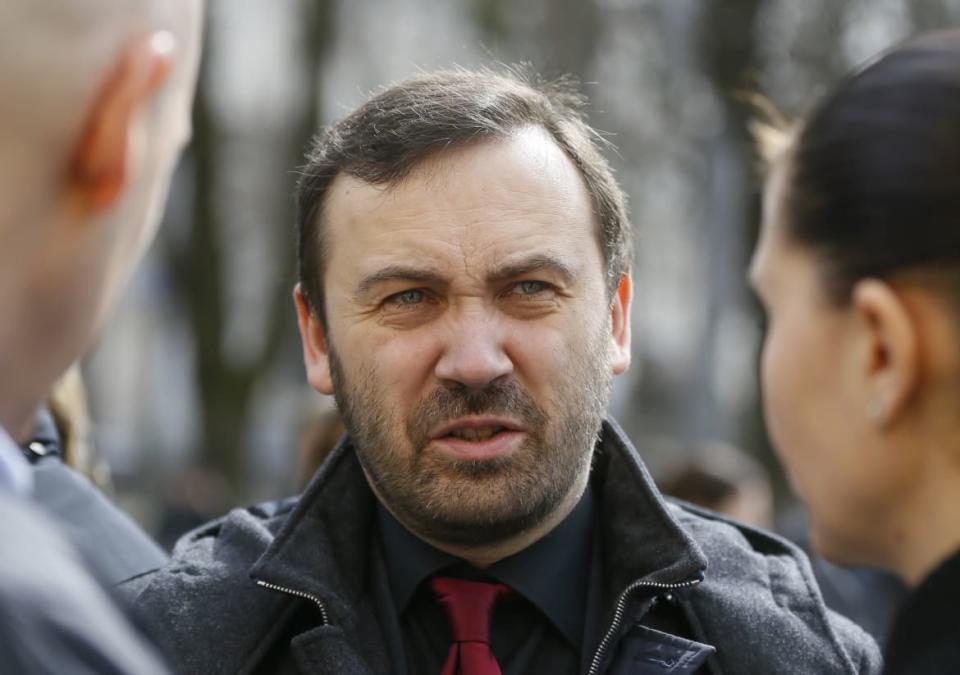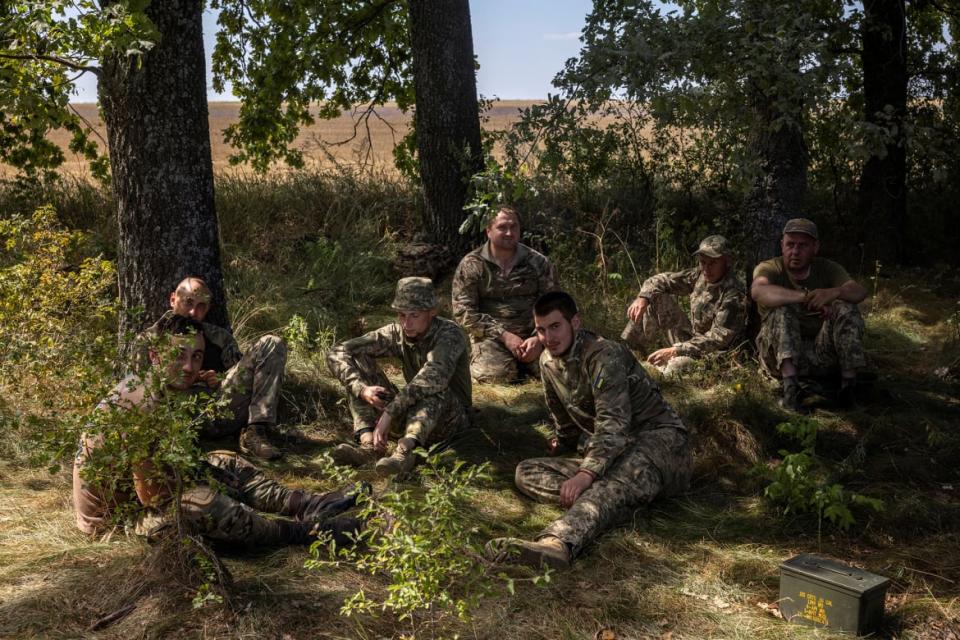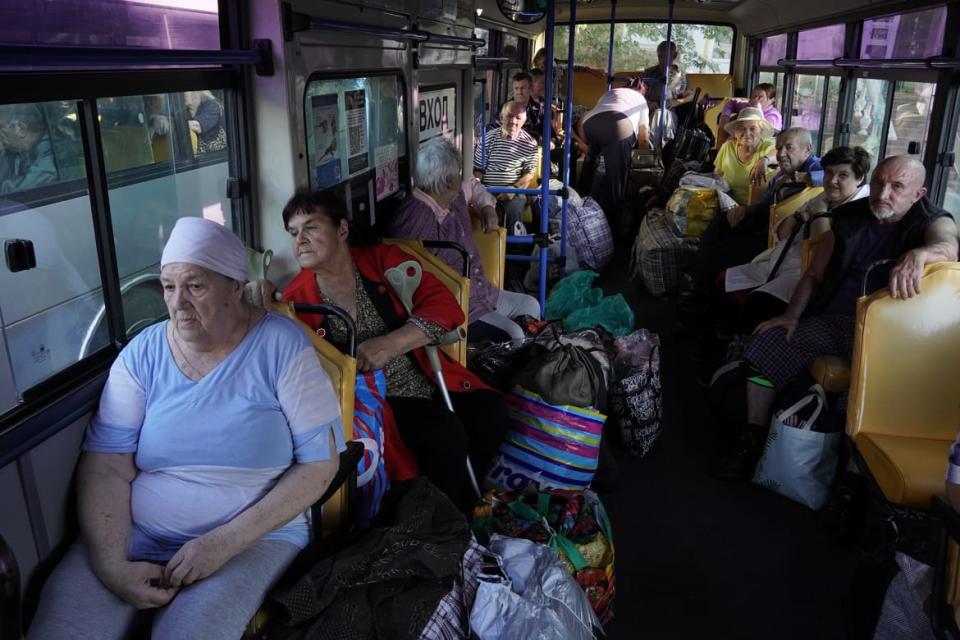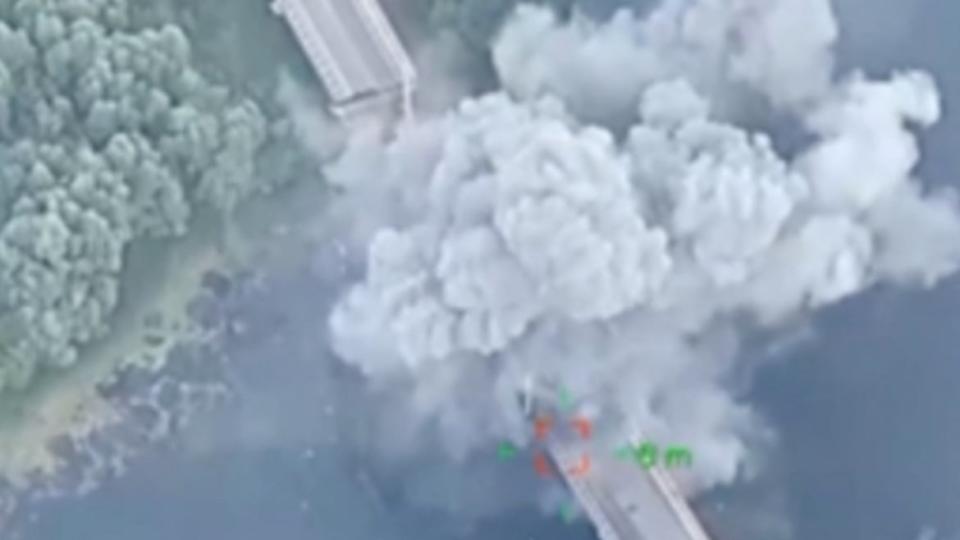A former Russian lawmaker self-exiled in Ukraine is seeking to establish a new political power base right under the nose of Vladimir Putin in Russian territory seized by Kyiv’s forces.
Ilya Ponomarev, a 49-year-old ex-politician now on Russia’s list of terrorists and extremists, says the stunning cross-border incursion launched by Kyiv’s forces on Aug. 6 presents a new “political opportunity.”
“I’ve been telling Ukrainian authorities for two years that Putin’s power is weak, that nobody is defending the border much,” Ponomarev tells the Daily Beast. “I have been preparing for this particular moment to begin building a new platform, assemble the new power on the Russian territory—I am ready to lead and risk my life, in any case Russian drones are already targeting me.”
Humiliation for Putin as Over 100 Troops Raise White Flag on Russian Soil
Ponomarev and his wife were injured earlier this month in a drone attack which damaged his home in Kyiv Oblast—he described the incident at the time as the fifth attempt on his life. He’s been a thorn in the side of the Kremlin for a decade, having been the only member of Russia’s State Duma to vote against Russia’s illegal annexation of Crimea in 2014.
He was later accused of embezzlement in Russia—charges which he dismissed as politically motivated—and has lived in exile in Ukraine for years. Ponomarev now wants to fight back by leading the revolt in Russia’s Kursk region, where Ukrainian broke through Russia’s defenses before continuing the campaign into the neighboring Belgorod region.

Ilya Ponomarev, a former Russian lawmaker now living in exile in Ukraine.
Valentyn Ogirenko/Reuters
“I am ready to lead the political authorities in Kursk, if Kyiv approves of it, of course,” Ponomarev told the Daily Beast, adding that he would like to recruit residents who haven’t fled the region. “Many Russian soldiers have been waiting for it,” he said. “Many more will join the legions now.”
In 2022, Ponomarev initiated and founded the Congress of People’s Deputies which currently includes 109 Russian citizens, former lawmakers, and bureaucrats, claiming to be the “transitional parliament” in exile. In late June, Warsaw hosted Ponomarev’s shadow parliament’s session that attracted dozens of Russian exiled politicians, calling for armed resistance to Putin’s rule.
Ponomarev said the Congress would be happy to welcome more new members, but few Russian opposition parties and movements have backed his position since the incursion began.


Soldiers of Ukraine’s 22nd Separate Mechanized Brigade rest during an exercise in the Sumy region near the Russian border on Aug. 17, 2024.
Thomas Peter/Reuters
“Many of our Congress deputies cannot wait to go to Kursk,” Ponomarev says. “We are open for everyone, we have a horizontal structure, but most liberals are skeptical, they are all waiting to see how the situation in Kursk is going to develop.”
As of Friday, 10 days since the incursion began, the presence of the Ukrainian military in the region of Kursk had only increased. National flags, armored vehicles, personnel, sniper positions, and even a commandant’s office have been established there, while Ukrainian fighters have published videos of dozens of Russian soldiers captured in the Kursk region.


Citizens being evacuated from border settlements to safe areas as clashes between the Russian and Ukrainian armies continue in the Kursk region, Russia on Aug. 17, 2024.
Vladimir Aleksandrov/Anadolu via Getty Images
Several reports on Thursday claimed over 100 Russian troops were captured inside Russia in the single biggest mass surrender since the war began.
“Some of the captured are 18-to-19-year-old conscripts, who Putin promised not to send to the front,” an activist of the Soldiers’ Mothers movement told the Daily Beast in an interview this week. “So, they moved these conscripts to the border area, where there is no connection with them—we receive many calls from devastated mothers.”
She added that although Kyiv’s strategy is still unclear to most Russians, many understand the Ukrainian military are not going to leave the occupied town of Sudzha and surrounding villages which have been abandoned by over 100,000 Russian residents.
Ukraine’s top military commander Gen. Oleksandr Syrsky claimed to control over 80 settlements having pushed more than 21 miles inside Russia.


Smoke billows from a bridge over the Seym river in the Glushkovo district, following a Ukrainian strike in the Kursk region, Russia on Aug. 16, 2024.
Ukrainian Air Force Commander Mykola Oleshchuk via Reuters
In Ponomarev’s view, the “absolute goal” of the incursion “would be to occupy the Kursk power plant and eventually swap it for the Zaporizhzhia Nuclear Power Plant.” The Zaporizhzhia plant in southeastern Ukraine—the largest nuclear power station in Europe—has been occupied by Russian troops since the early days of the war in March 2022.
Some in Russia have likened Ponomarev to Vladimir Lenin, who also plotted political revolution a century ago revolution while in exile. Others are less impressed, including Lev Shlosberg, the deputy chair of the opposition Yabloko party in Russia.
“They are not politicians, they are bandits, guerrillas, direct successors of terrorist-Bolsheviks,” Shlosenberg told the Daily Beast about exiled Russian politicians like Ponomarev. “Nobody has ever harmed Russia more than Bolsheviks. They are people of violence, revolution, war, and blood.”
Another exiled lawmaker, Gennady Gudkov, sounded skeptical about Ponomarev’s plan to establish alternative power in the Kursk region. “Seriously,” Gudkov told the Daily Beast, “This is not a great idea.”
Get the Daily Beast’s biggest scoops and scandals delivered right to your inbox. Sign up now.
Stay informed and gain unlimited access to the Daily Beast’s unmatched reporting. Subscribe now.
Source Agencies
